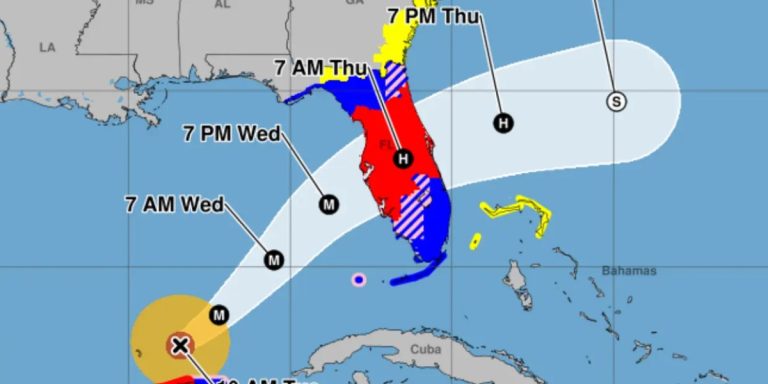not many people know
Paul Homewood
More lies from the BBC:

US forecasters warn that Hurricane Milton is moving towards Florida, bringing “potentially catastrophic” winds, storm surges and heavy rainfall.
The storm is expected to hit the densely populated city of Tampa Bay, less than two weeks after the state was hit hard by Hurricane Helene.
Milton is the ninth hurricane of the 2024 Atlantic season, which will last until the end of November.
https://www.bbc.co.uk/news/world-us-canada-42251921
But as the BBC, they can’t resist common misinformation:

What the IPCC actually says is this:

In other words, there is no evidence of trends in hurricane frequency or intensity.
The IPCC also states:

It is generally accepted that Atlantic hurricanes tended to be weaker during the cold phases of the AMO from the 1970s to 1990s. But clearly long-term data going back to the 19th century trumps any short-term data, especially given known ocean cycles.
NOAA is even clearer on this:

https://www.gfdl.noaa.gov/global-warming-and-hurricanes
But the BBC made no mention of long-term trends. Nor is there any mention of NOAA’s very clear statement regarding U.S. and Atlantic hurricanes:

https://www.gfdl.noaa.gov/global-warming-and-hurricanes
.
To top it all off, the BBC even included this intentionally deceptive chart:
.

There has been a significant increase in major hurricanes in the Atlantic since 1920 because we now have satellites observing them in the mid-ocean. That's why a huge change occurred in the 1990s.
A look at the hurricanes that have made landfall in the United States shows that the strongest hurricanes are clearly not going to increase in the long term:

Relevant
